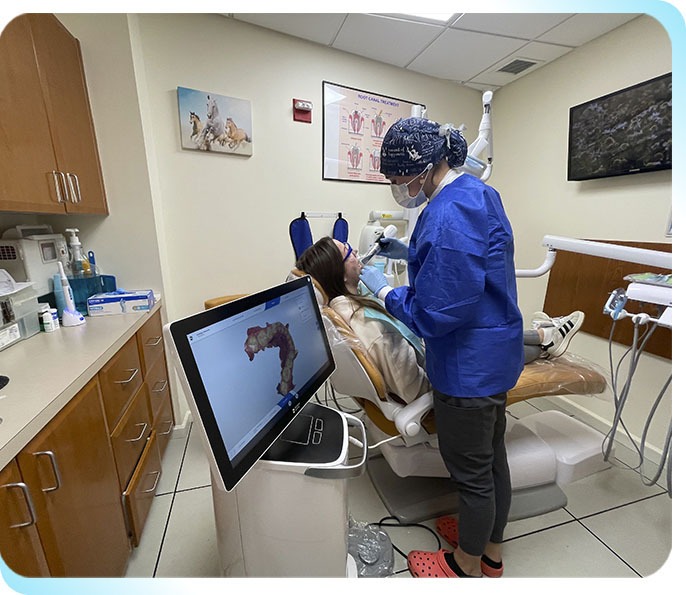
Dental implants are small posts that are placed into your jawbone to take the place of missing tooth roots. They’re usually made of titanium or zirconia—materials that work well with your body. Once your jaw heals around the implant, we attach a crown, bridge, or denture on top.
Implants can be a great solution if you’ve lost teeth because of:
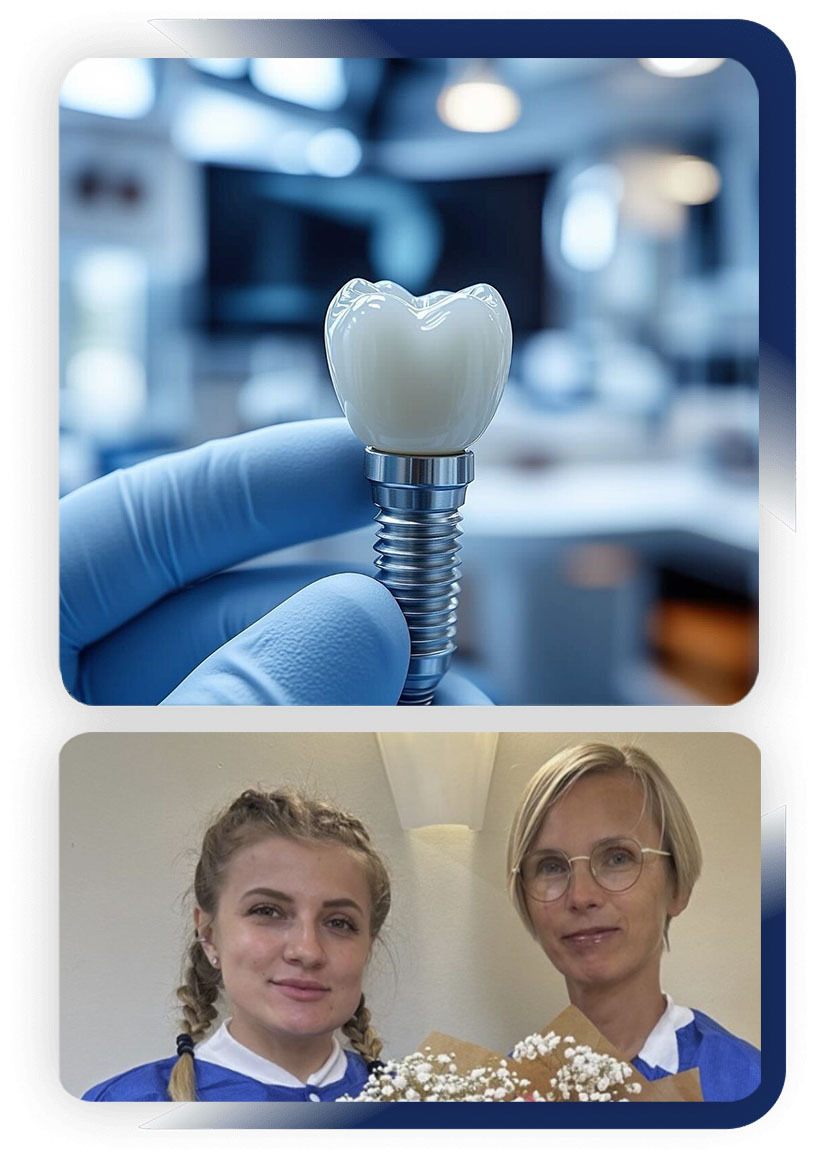
A dental implant generally consists of three main parts. First, there’s the screw-like piece that gets anchored into your jawbone. Next comes the connector, called the abutment, which attaches to that screw. Finally, the visible part—the crown or other restoration—is placed on top to complete the implant.
When just one tooth is missing, it can be replaced with a single dental implant topped with a crown. If you're missing several teeth, a few implants can hold a dental bridge in place. These crowns and bridges aren't meant to come out—they're either securely screwed in or cemented onto the implant posts.
Dental implants can also be used to support a removable denture. Instead of being fixed in place, this type of denture snaps onto the implants or a metal bar that connects to them, making it easy to take out when needed. These are often referred to as denture implants or implant-retained dentures.
Titanium is the most common material and has a long track record of success. If you’d rather avoid metal, zirconia is a ceramic option that’s also safe and effective.
Dental implants can help you get back to eating the foods you love and speaking with ease. They look, feel, and function like natural teeth, offering strong support for anything from a single crown to a full set of replacement teeth. If you wear dentures, implants can make a big difference by keeping them stable and secure—no more worrying about slipping or discomfort. It's a reliable way to restore your smile and your confidence.
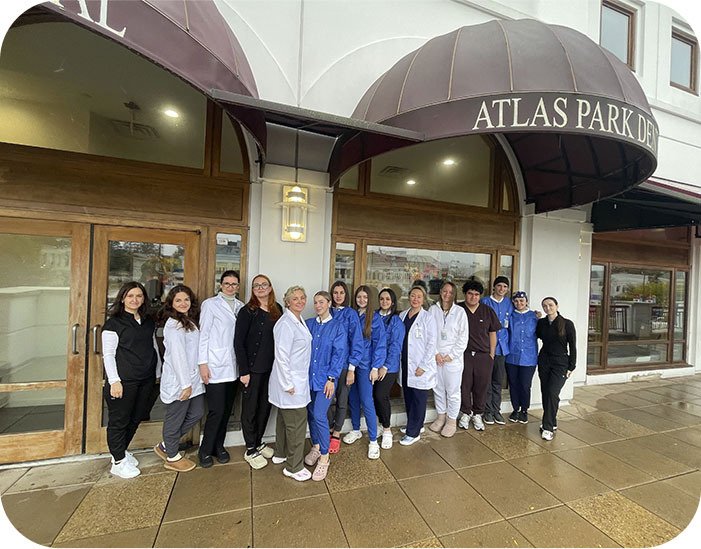
When just one tooth is missing, a single implant paired with a crown can fill the gap without affecting the surrounding teeth. Unlike a traditional bridge it doesn’t require shaving down neighboring teeth. It’s a simple, effective way to bring back the look and function of a natural tooth.
If you’re missing several teeth next to each other, an implant-supported bridge could be a great option. Instead of putting an implant for every missing tooth or using your healthy teeth to hold a bridge, we place just a few implants in key spots to support the whole bridge. This approach not only gives you a strong, stable set of teeth but also helps protect the bone in your jaw and keeps your natural teeth safe. It’s a way to restore your smile while taking care of your overall oral health.
If you’re missing all the teeth on your upper or lower jaw, All-on-4 dental implants offer a reliable way to restore your smile. This full mouth dental implants solution uses just four to six implants per arch to support a fixed, natural-looking set of teeth. Unlike traditional dentures that you have to take out, these are fixed in place, so there’s no need to worry about them slipping or removing them at night. In many cases, we can even give you a temporary set of teeth right after the implants are placed so you won’t have to go without a smile while everything heals.
Implant-retained dentures offer a great middle ground for patients who prefer a removable option with more stability than regular dentures. They securely clip onto dental implants, so they stay in place when you’re eating or talking and they’re easy to remove for cleaning. We also offer options like mini dental implants for certain cases where a smaller implant might be more suitable or a less invasive approach is preferred for denture stabilization.
If you’re considering ways to replace missing teeth, we’re ready to help. Schedule a consultation so we can explore your options together. Our dentists will explain each choice clearly and support you in finding the best solution.
As with any surgery, there are a few possible risks:
Every implant we place starts with careful planning. We use advanced techniques to map out the area and avoid important structures like nerves and sinuses. This lets us position the implants exactly where they need to go—for results that feel comfortable, work properly, and look completely natural. We also keep safety a top priority, following strict infection control measures to protect both our patients and our team at every step.


Many people are. We’ll check your oral and overall health to be sure. If you don’t smoke and take care of your teeth, your chances of success are even higher.

Implants might not be the best fit if you:
It begins with a full dental exam. We’ll check your teeth, ask about your health, and may talk with your doctor if needed. Be ready to share a list of your medications, too.
Diagnostic Imaging We’ll take X-rays or 3D scans to see how much bone you have and decide where the implants should go. These images help us plan everything down to the millimeter.
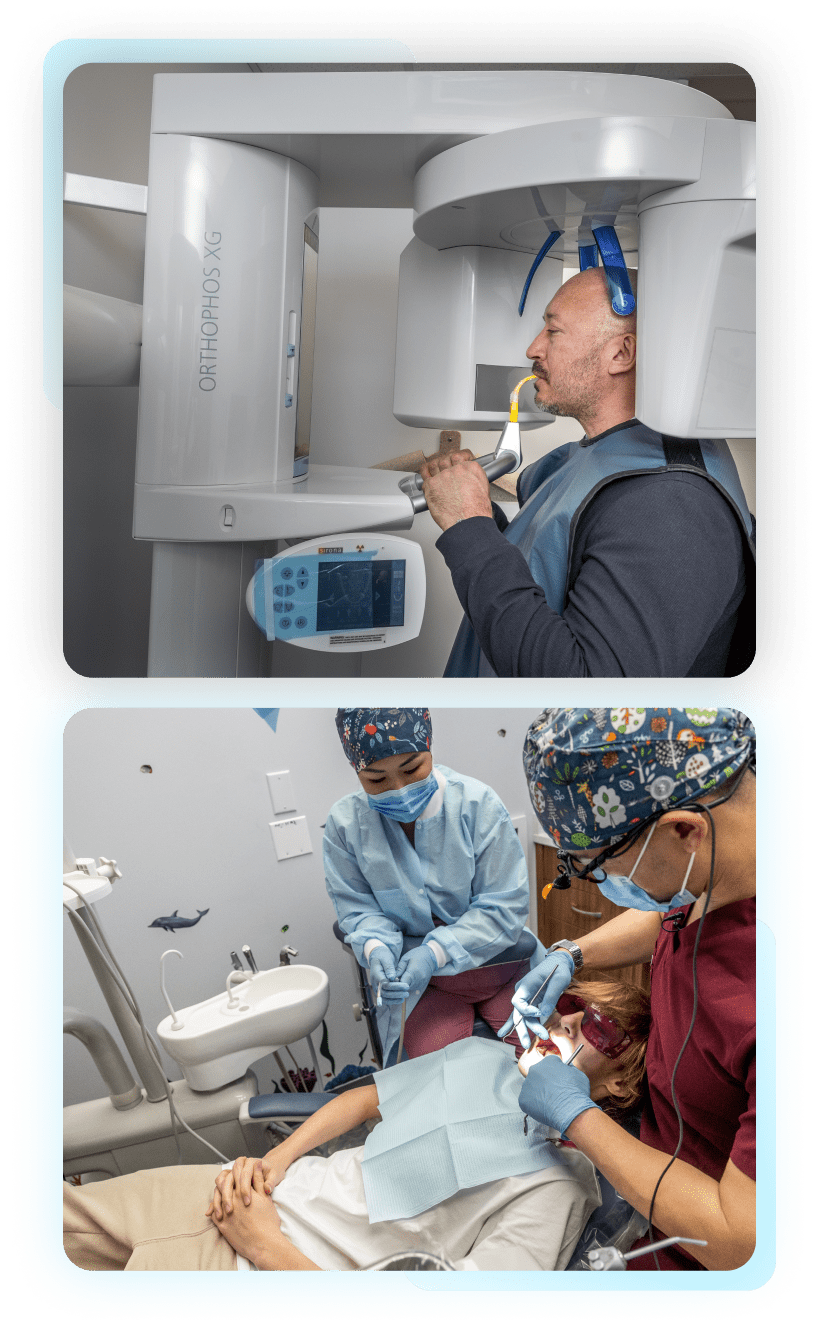
Once we’ve gone over your dental and overall health and talked about what you want to achieve, we’ll create a personalized treatment plan just for you. This plan will explain all your options along with the costs involved. Prices can vary based on the type of implant system and the materials used for your restoration. We’ll also cover any additional treatments you might need, like bone grafting.
Bone grafting is pretty common before implant surgery because the implants need enough healthy bone to anchor securely. Without enough bone, the implant might not hold properly—or you might not be a good candidate for implants at all.
You might also need other procedures, like removing problematic teeth or addressing infections in your gums or teeth before moving forward. If you’re nervous or prefer extra comfort, we can talk about sedation options as well.
We know some places offer very low-cost implants, but those can end up costing you more in the long run. It’s important to have high-quality implants and thorough diagnostics to make sure everything goes smoothly. Often, those cheap prices don’t include necessary steps like bone grafts or detailed imaging like cone beam CT scans.
Some plans now help cover part of the cost, especially when implants are needed for function, not just looks. We’ll review your plan with you so you know what to expect.
Most implant procedures just need local anesthesia. But if you’re nervous or the treatment is more involved, we offer sedation. Just plan to have someone pick you up afterward.
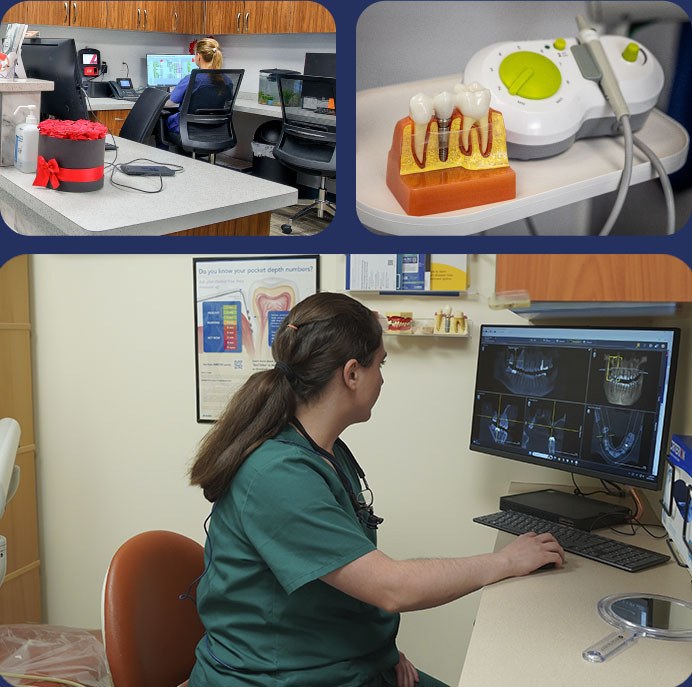
Once we finalize your plan, here’s what typically happens:
Some patients get a temporary tooth the same day, but in most cases, we’ll wait about three months for the implant to fully bond with your bone.

With proper care, your dental implants can last for many years—even a lifetime. The key is staying committed to maintaining them well. After your implant surgery, we’ll guide you on how to clean around your implants carefully and effectively.
Regular check-ups and professional cleanings are important, too. During these visits, we’ll examine your implants and use special tools to keep them in great shape. Some parts of the implant system, like the attachments on implant-supported dentures, might need occasional replacement. And over time, crowns, bridges, or overdentures may also need to be refreshed.
If you’re interested in learning more about dental implants and how they could work for you, schedule a consultation with our experienced team. We offer a variety of options—including cost-friendly solutions like implant-supported overdentures—to help you find the best fit for your smile.
After your implant surgery, we will give you clear instructions on how to care for your mouth, and I might prescribe antibiotics to reduce the chance of infection. It’s really important that you stick to these guidelines and take all medications just as I’ve directed. Here’s what I want you to keep in mind during your recovery:
Most people heal smoothly and comfortably, but if you feel more pain than expected or something doesn’t seem right, don’t hesitate to reach out to us. Your comfort and healing are our priority.
Once your implant has fully healed and bonded with your jawbone—a process that usually takes a few months—we'll move forward with fitting your permanent crown or restoration. It’s crucial not to rush this step, as placing it too early can risk the implant's success.
Have questions or want to learn more about dental implants? Call us at (718) 894-2110 or Contact Us and we will be happy to answer your questions and schedule an appointment.
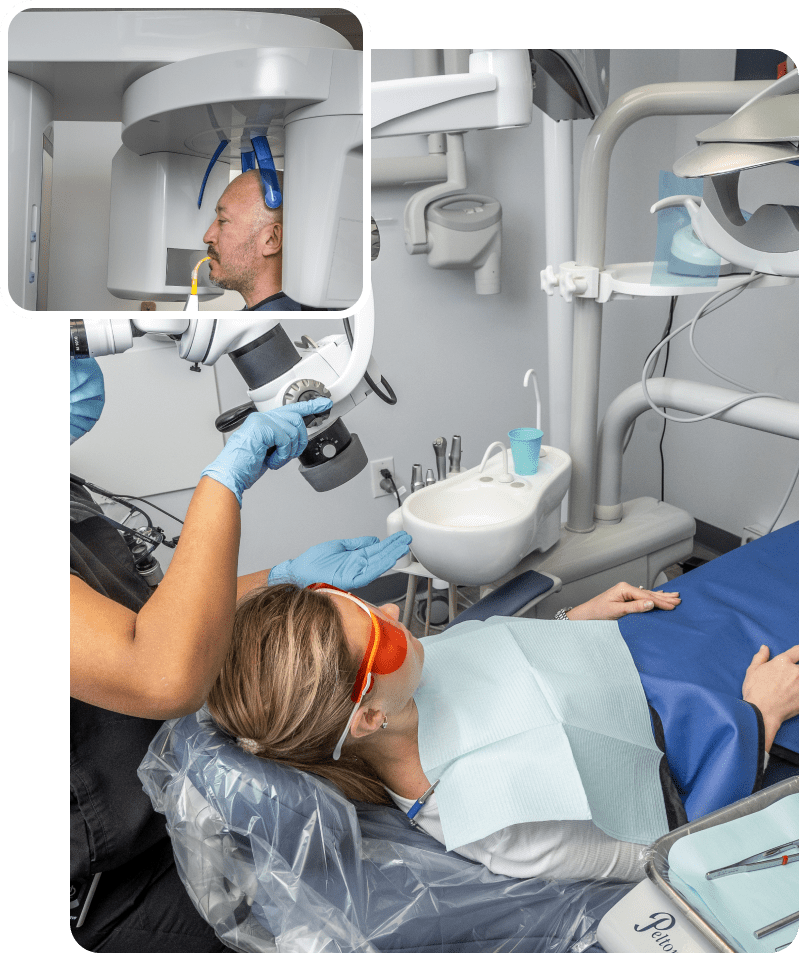

My name is Victoria Kushensky. I am a general dentist dedicated to remaining at the forefront of my field. Combining compassionate care with extensive knowledge, I offer cosmetic and general dentistry services as well as advanced root canal treatments.
I earned my Doctor of Dental Surgery (DDS) degree from the esteemed New York University College of Dentistry. Throughout my career, I have honed my skills in various dental procedures, ensuring effective treatment for each patient’s unique needs. I prioritize patient comfort and understanding, taking the time to thoroughly explain procedures and address any questions.
More about Dr. KushenskyAtlas Park Dental
80-28 Cooper Ave #207
Glendale, NY 11385
(718) 894-2110